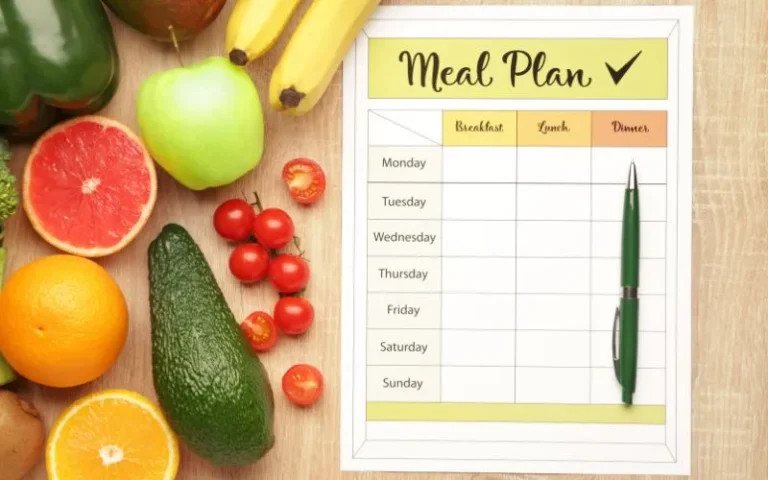Losing weight is a common goal for many people, often sparked by the desire to improve health, enhance physical appearance, or boost self-esteem. However, the journey to a weight loss goal can be challenging and filled with numerous questions, one of the most common being: “How much weight can you lose in a month?” This question, while straightforward, has a complex answer that depends on various factors, including individual body types, metabolic rates, and lifestyle choices. In today’s blog, we will explore what constitutes a reasonable monthly weight loss goal, delve into diet and exercise strategies, and offer motivational tips to help you stay on track.
What Is A Reasonable Weight Loss In A Month?
The safe and sustainable weight loss rate is typically 1 to 2 pounds per week, equivalent to 4 to 8 pounds per month. This gradual rate of weight loss allows the body to adjust appropriately, preserving lean muscle mass and reducing the potential for nutritional deficiencies.
Rapid weight loss, often seen in crash diets or extreme calorie restrictions, can lead to muscle loss, slowed metabolism, and other health issues. It’s essential to focus on gradual changes that are maintainable in the long term.
What To Include In Your Diet To Lose 4-8 Pounds In A Month
Achieving a weight loss goal of 4-8 pounds monthly requires a balanced and nutritious diet. Here are key dietary components to focus on:
High-Fiber Foods
Add foods like oatmeal, brown rice, and whole-grain bread to your daily meals. The following foods are rich in fiber, a crucial nutrient known for its ability to promote healthy digestion, stabilize blood sugar, and prolong satiety. The sustained release of energy from these grains prevents spikes in hunger and curbs overeating.
A range of fruits and vegetables should be a cornerstone of your diet. They are low in calories but high in essential nutrients, antioxidants, and dietary fiber. Colorful vegetables like broccoli, carrots, and leafy greens are particularly beneficial for their fiber content, which aids in the digestion system and supports weight loss by promoting satiety.
Omega-3 Rich Foods
Omega-3 fatty acids, which can be found in krill meat and fatty fish such as salmon and mackerel, are crucial for maintaining cardiovascular health, mitigating inflammation, and bolstering cognitive function. These bioactive compounds also contribute to weight management by enhancing satiety and promoting metabolic well-being. Incorporating these dietary sources into your regimen offers a high-value protein and essential fat reservoir, thereby enhancing the nutritional profile of a well-rounded diet.
Lean Proteins
Chicken, turkey, and fish such as salmon and tuna are excellent lean protein sources. Protein is really important for keeping your muscles strong, especially when you’re trying to lose weight. It also helps your body burn more energy when you eat it, which can speed up your metabolism. Eating a good amount of lean protein with each meal can help maintain your blood sugar levels and make you less likely to feel hungry between meals.
For those who prefer vegetarian options, foods like beans, lentils, chickpeas, and tofu offer significant amounts of protein without the added saturated fats in some animal products. These plant-based proteins also provide fiber and other vital nutrients, making them a healthy and filling option for weight loss.
Healthy Fats
Healthy fats play a crucial role in a well-rounded diet, aiding in weight management by enhancing feelings of fullness. Avocados are abundant in monounsaturated fats, and they are popular for their ability to lower LDL cholesterol. Nuts such as almonds, walnuts, and chia seeds offer a valuable combination of protein, healthy fats, and dietary fiber. Nevertheless, it’s essential to practice portion control with nuts due to their high-calorie content.
Olive oil is really good for you because it has healthy fats that are great for your heart. Using olive oil as a dressing or cooking oil can help you avoid unhealthy fats in butter and certain processed oils. Its anti-inflammatory properties also contribute to overall well-being, which is important when dieting.
Low Carb Foods
Various vegetables like spinach, kale, and Brussels sprouts are low in carbohydrates and fiber, making them ideal for a low-carb diet. They are nutrient-dense, offering vitamins, minerals, and antioxidants without adding many calories to your diet. These vibrant colored vegetables can be consumed in large quantities, helping you feel full without over-consuming calories.
Eggs are a versatile food rich in protein, healthy fats, and essential nutrients like choline. They can make you feel full and help you eat fewer calories. Low-fat dairy products like Greek yogurt and cottage cheese are also great for protein and calcium, supporting muscle function and bone health.
Exercise For Weight Loss
It’s important to exercise regularly to lose weight and stay healthy. Activities like walking, running, biking, and strength training workouts can help you burn calories and build muscles. Building muscles is great because it enables you to burn more calories even when you’re not exercising. If you’re just starting, begin with exercises that aren’t too hard and slowly make them tougher to avoid getting hurt and to stick with your new exercise routine. Including a variety of activities can also make exercising more enjoyable and sustainable.
Motivational Tips For Weight Loss
- Set Realistic Goals: Divide your weight loss goal into smaller, easier-to-manage targets. Celebrate each achievement to stay motivated.
- Track Your Progress: Recording your daily food intake and workout using a food diary or a mobile app can support accountability and facilitate well-informed decision-making.
- Seek Support: Joining a weight loss group, gym, or finding a workout buddy can provide encouragement and motivation.
- Focus on Non-Scale Victories: Pay attention to other progress indicators, such as improved energy levels, better sleep, or increased fitness.
- Stay Positive: Maintain a positive attitude and remind yourself that weight loss is gradual. Avoid negative self-talk and practice self-compassion.
Conclusion
Losing weight in a month requires a balanced approach that combines healthy eating, regular exercise, and a positive mindset. While it is possible to achieve noticeable results quickly, the focus should always be on long-term sustainability and overall health. By setting realistic goals, making gradual changes, and staying motivated to achieve your weight loss goal, you can embark on a successful road that helps you shed pounds and improves your well-being.
Frequently Asked Questions
Is Losing 2 kg A Month Healthy?
Losing 2 kg per month is generally considered a healthy and achievable goal. According to experts, losing between 0.45 kg and 0.9 kg per week is safe and minimizes health risks. Rapid weight loss exceeding this rate can lead to muscle loss, gallstones, nutritional deficiencies, and a potential decrease in metabolic rate. Maintaining a steady, moderate pace of weight loss helps ensure that the body can adjust without adverse effects, supporting long-term success and overall well-being.
Can Losing Weight Rapidly Damage Our Metabolism?
Yes, losing weight too quickly can negatively impact metabolism. When weight loss is rapid, the body may slow the metabolism to conserve energy, making it harder to lose and maintain the loss. This is often due to a loss of muscle mass, which is metabolically active tissue. A slower, steady rate of weight loss helps preserve muscle mass, supporting a healthier metabolism and more sustainable long-term weight management.










